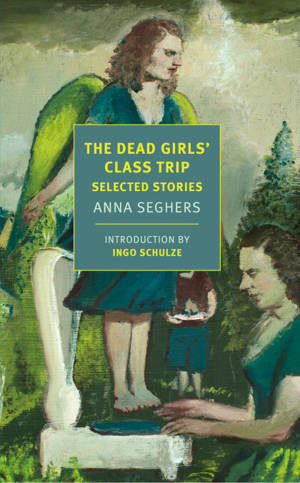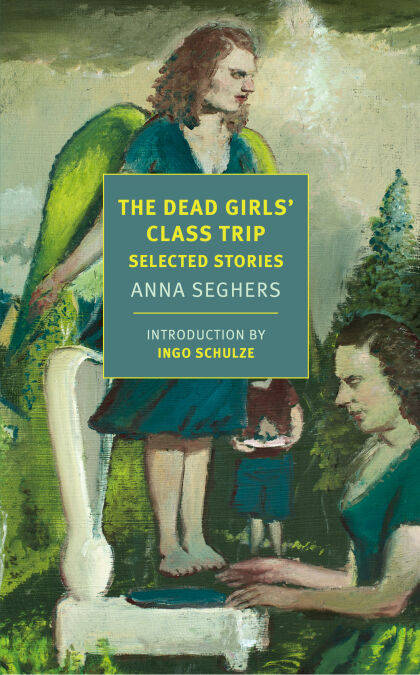
- Afhalen na 1 uur in een winkel met voorraad
- Gratis thuislevering in België vanaf € 30
- Ruim aanbod met 7 miljoen producten
- Afhalen na 1 uur in een winkel met voorraad
- Gratis thuislevering in België vanaf € 30
- Ruim aanbod met 7 miljoen producten
Zoeken
€ 16,71
+ 16 punten
Uitvoering
Omschrijving
A new translation of the best and most provocative short stories by the author of Transit and The Seventh Cross.
Best known for the anti-fascist novel The Seventh Cross and the existential thriller Transit, Anna Seghers was also a gifted writer of short fiction. The stories she wrote throughout her life reflect her political activism as well as her deep engagement with myth; they are also some of her most formally experimental work. This selection of Seghers’s best stories, written between 1925 and 1965, displays the range of her creativity over the years. It includes her most famous short fiction, such as the autobiographical “The Dead Girls’ Class Trip,” and others, like “Jans Is Going to Die,” that have been translated into English here for the first time. There are psychologically penetrating stories about young men corrupted by desperation and women bound by circumstance, as well as enigmatic tales of bewilderment and enchantment based on myths and legends, like “The Best Tales of Woynok, the Thief,” “The Three Trees,” and “Tales of Artemis.” In her stories, Seghers used the German language in especially unconventional and challenging ways, and Margot Bettauer Dembo’s sensitive and skilled translation preserves this distinction.
Best known for the anti-fascist novel The Seventh Cross and the existential thriller Transit, Anna Seghers was also a gifted writer of short fiction. The stories she wrote throughout her life reflect her political activism as well as her deep engagement with myth; they are also some of her most formally experimental work. This selection of Seghers’s best stories, written between 1925 and 1965, displays the range of her creativity over the years. It includes her most famous short fiction, such as the autobiographical “The Dead Girls’ Class Trip,” and others, like “Jans Is Going to Die,” that have been translated into English here for the first time. There are psychologically penetrating stories about young men corrupted by desperation and women bound by circumstance, as well as enigmatic tales of bewilderment and enchantment based on myths and legends, like “The Best Tales of Woynok, the Thief,” “The Three Trees,” and “Tales of Artemis.” In her stories, Seghers used the German language in especially unconventional and challenging ways, and Margot Bettauer Dembo’s sensitive and skilled translation preserves this distinction.
Specificaties
Betrokkenen
- Auteur(s):
- Vertaler(s):
- Uitgeverij:
Inhoud
- Aantal bladzijden:
- 328
- Taal:
- Engels
Eigenschappen
- Productcode (EAN):
- 9781681375366
- Verschijningsdatum:
- 14/06/2021
- Uitvoering:
- E-book
- Beveiligd met:
- Adobe DRM
- Formaat:
- ePub

Alleen bij Standaard Boekhandel
+ 16 punten op je klantenkaart van Standaard Boekhandel
Beoordelingen
We publiceren alleen reviews die voldoen aan de voorwaarden voor reviews. Bekijk onze voorwaarden voor reviews.








